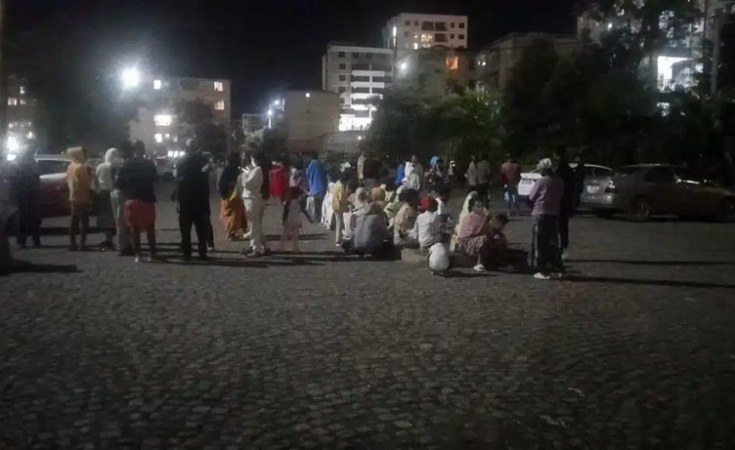Addis Abeba — The Command Post in the Afar Region has reported that more than 58,000 people, including 4,000 Kesem Sugar Factory workers, have entered temporary shelters and are receiving humanitarian assistance after being displaced by repeated earthquakes in Dulesa and Awash Fentale districts of Gabi Rasu Zone.
Ahmed Ibrahim, the Command Post Coordinator, said the earthquakes, some reaching 5.8 on the Richter scale, caused widespread panic. "Many displaced people are now in shelters, but others have moved to mountainous areas in the Amhara Region with their livestock," he explained. While significant property damage has been confirmed, he added, "no major casualties or injuries have been reported."
Ahmed also noted that eight health facilities are no longer operational, but temporary health services have been established at shelter sites. "Doctors continue to serve the displaced despite the challenges," he said, adding that key roads, including the Sidiafage-Kesem road, have been damaged by cracks and swelling.
Recently, the Afar Region and surrounding areas experienced a series of seismic events, including a 5.8-magnitude earthquake recorded on January 4, 2025, 56 kilometers south-southeast of Abomsa. Earlier the same day, a 5.5-magnitude earthquake struck 44 kilometers northeast of Awash at a depth of 10 kilometers.
Authorities had previously announced the relocation of pastoralists living near the Kesem Dam in Awash Fentale district, as part of ongoing efforts to safeguard vulnerable populations.
Reports indicate that the earthquakes have caused significant damage to Kesem Sugar Factory, located in Dulesa district.
Ali Hussein, the factory's General Manager, said the infrastructure sustained "moderate to severe" damage, including the collapse of the power distribution building, cracks across sugarcane fields, and harm to warehouses and residential areas. "Around 4,000 factory employees and their families have been evacuated to safe locations," he stated, adding that assessments of additional damages are ongoing.
The regional government, according to Ahmed, has provided essential aid, including food, water, and clothing. It has also installed water tanks and deployed permanent water trucks to the shelter sites.
Previously, the Ethiopian Red Cross Society (ERCS) conducted a rapid assessment in the affected areas, estimating that approximately 81,750 individuals had been impacted. The ERCS highlighted urgent needs for emergency shelter, food assistance, and access to clean water.
In the capital, the Addis Abeba City Administration has established a task force to strengthen earthquake preparedness and assess the city's vulnerability following the 5.8-magnitude earthquake, which was also felt in Addis Abeba.


